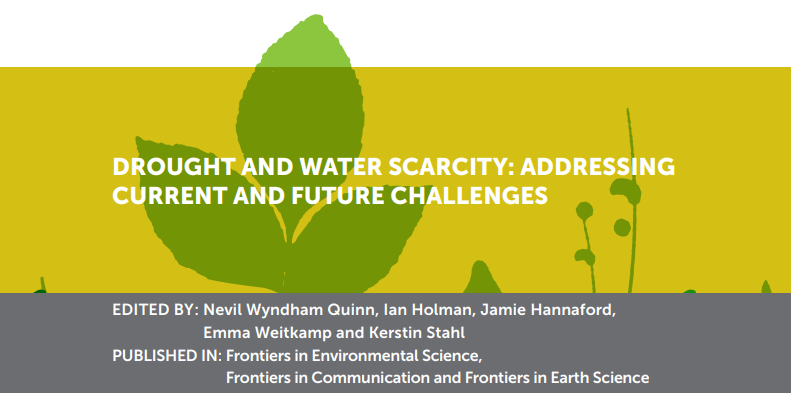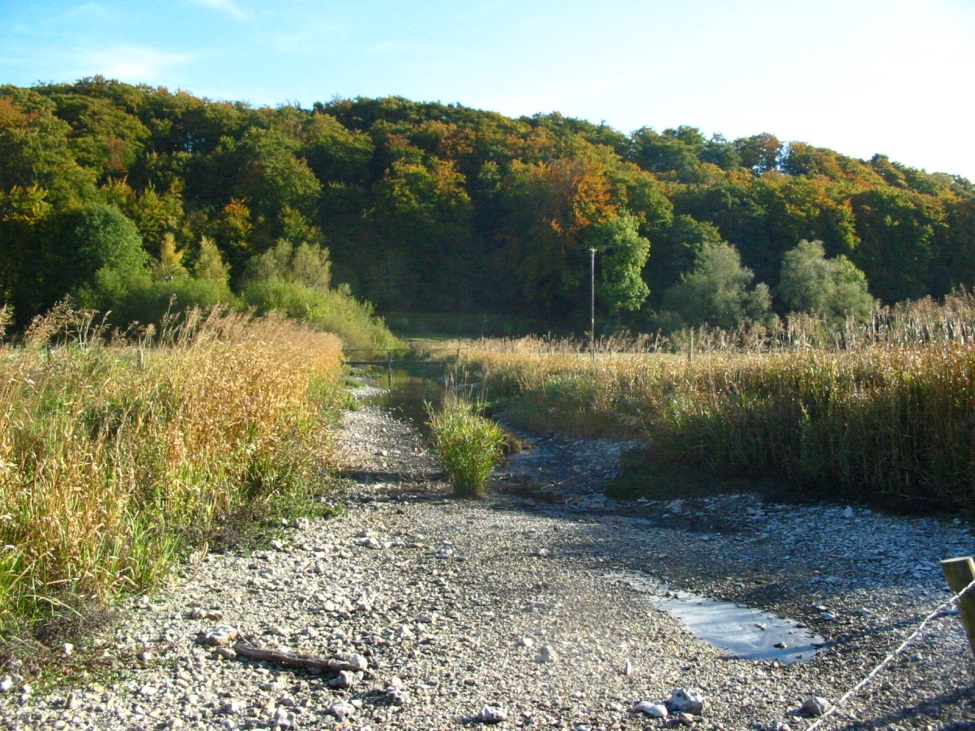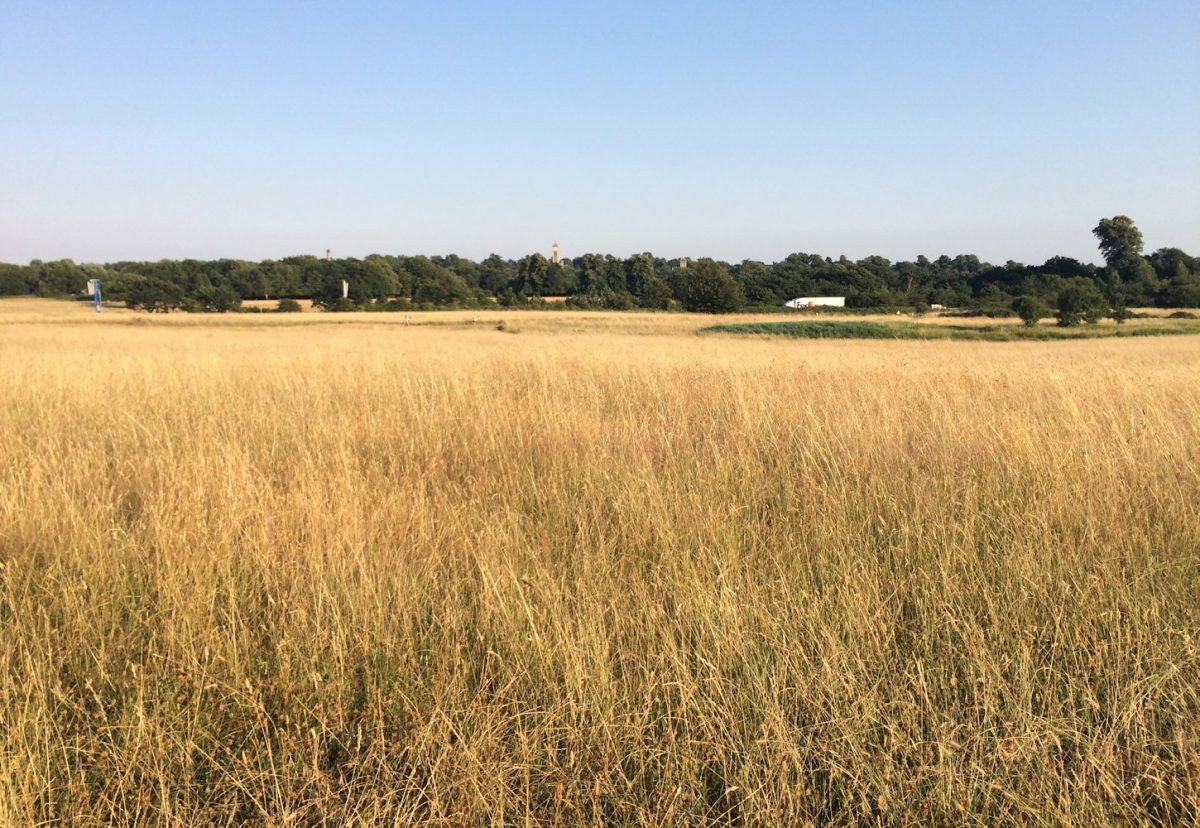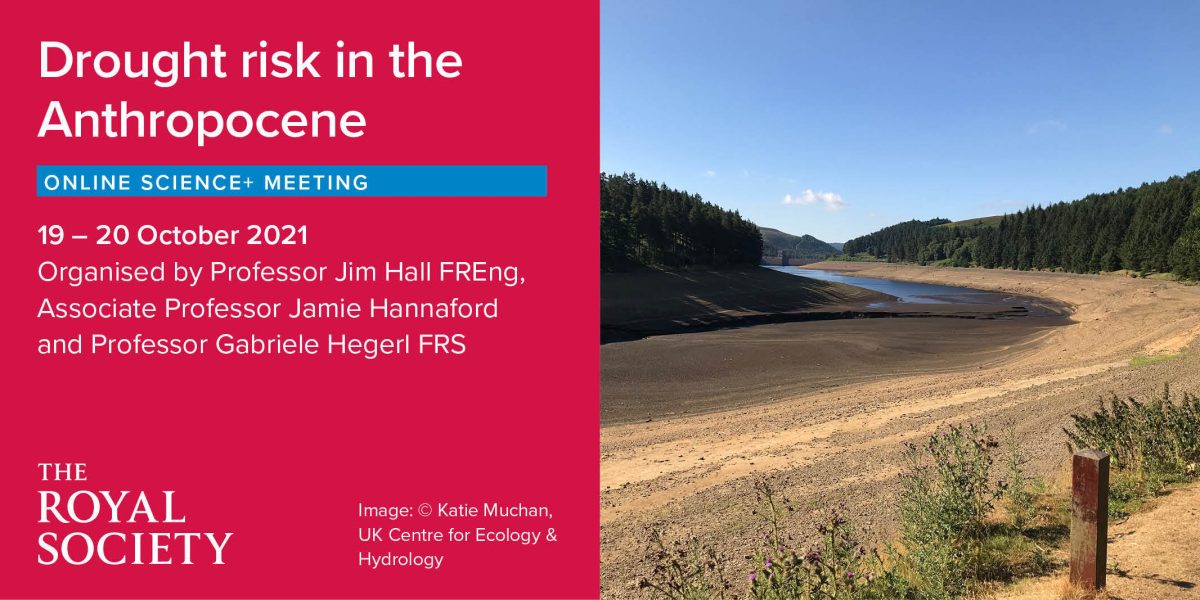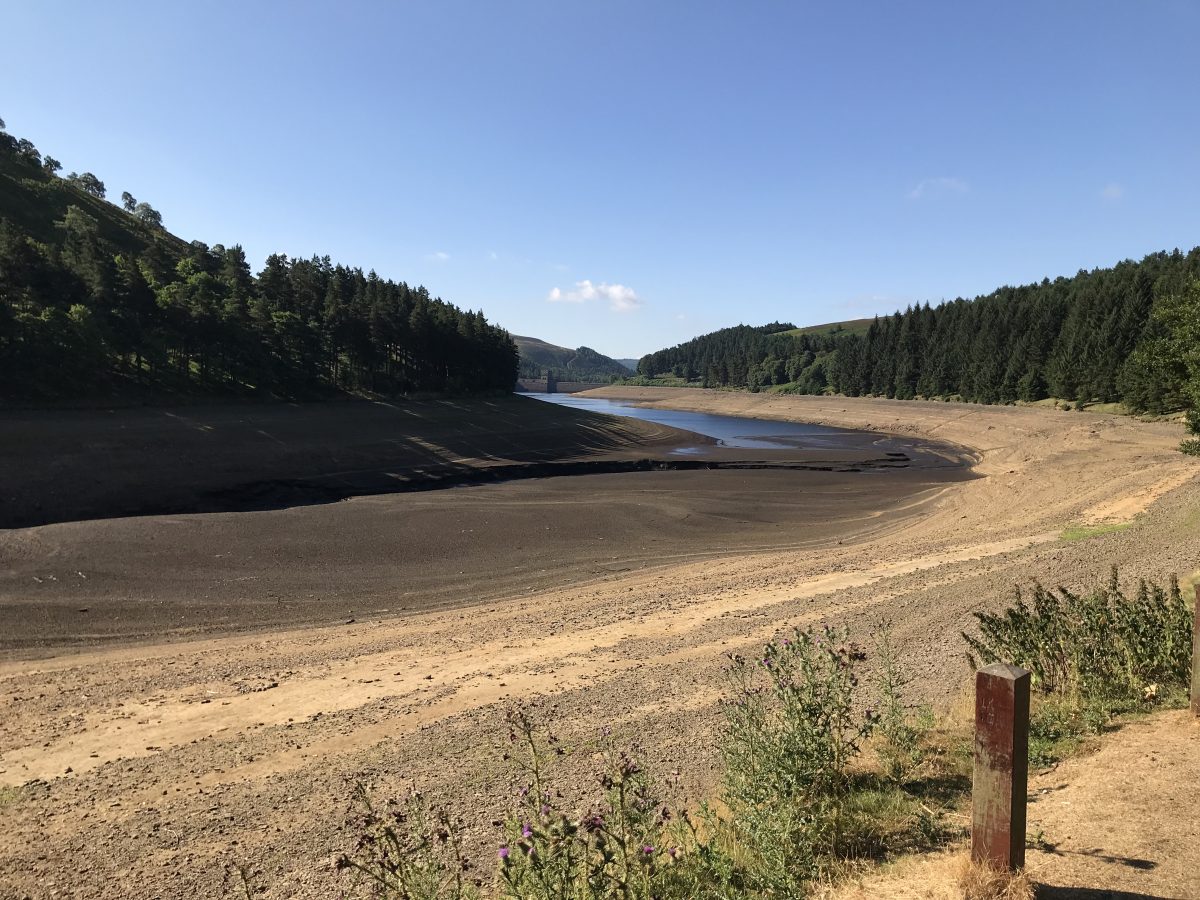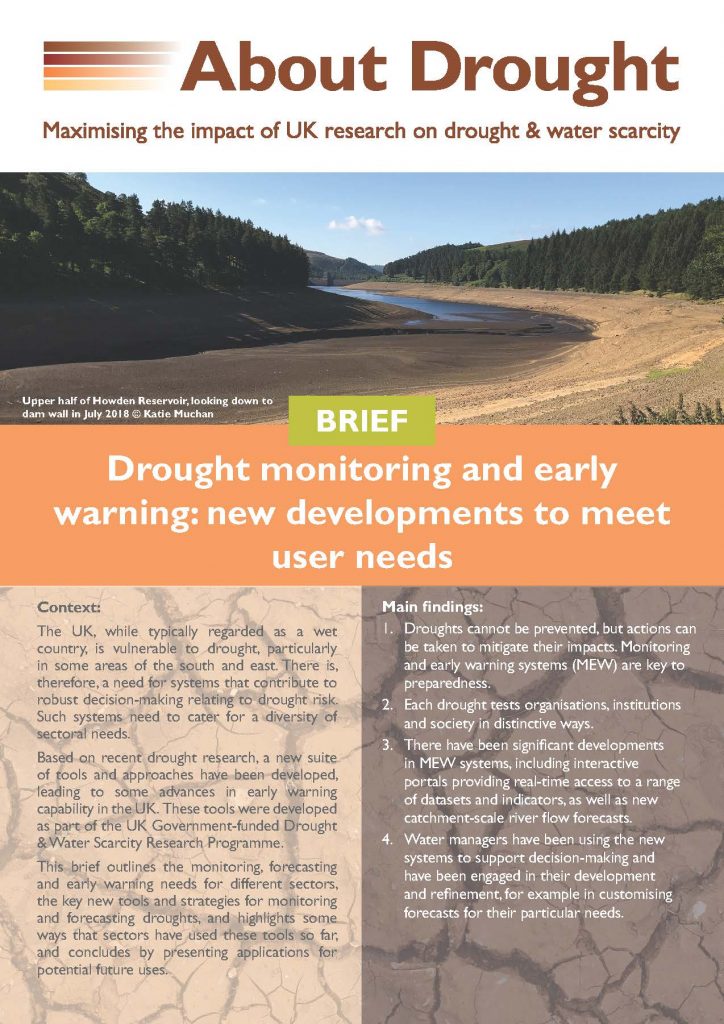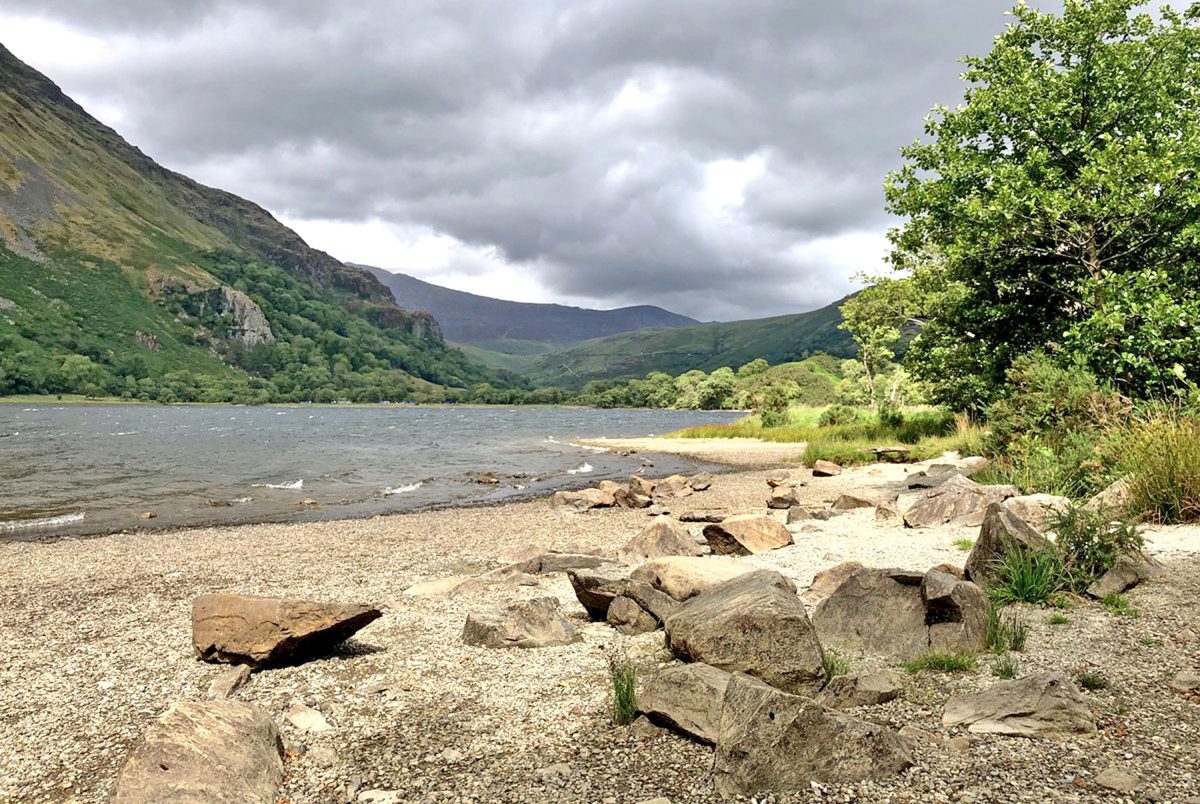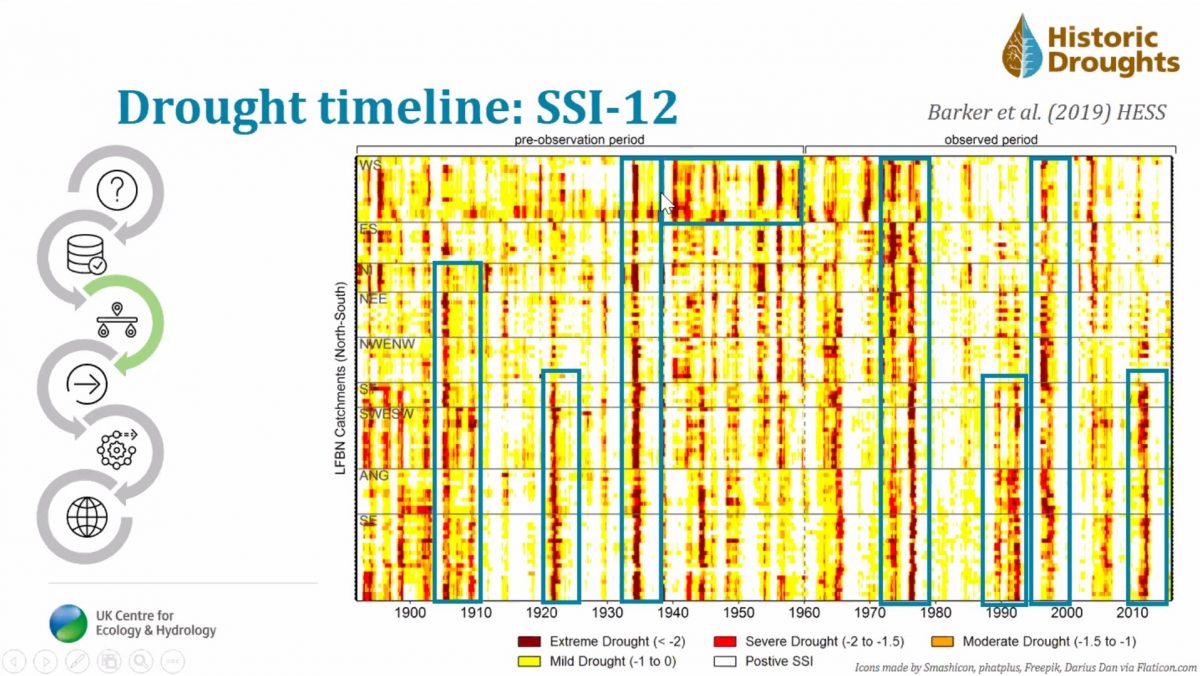Papers from the Science+ meeting held at the Royal Society and organised and edited by Professor Jim Hall, Associate Professor Jamie Hannaford and Professor Gabriele Hegerl is now available!
The impacts of droughts on people and the natural environment are increasing, due to climate change and over-exploitation of water resources. This Science+ meeting issue explored scientific understanding of changing drought risk and examined drought impacts on the environment, people and the economy. Policy-makers, practitioners and scientists explored policy options for management of droughts in the future.


